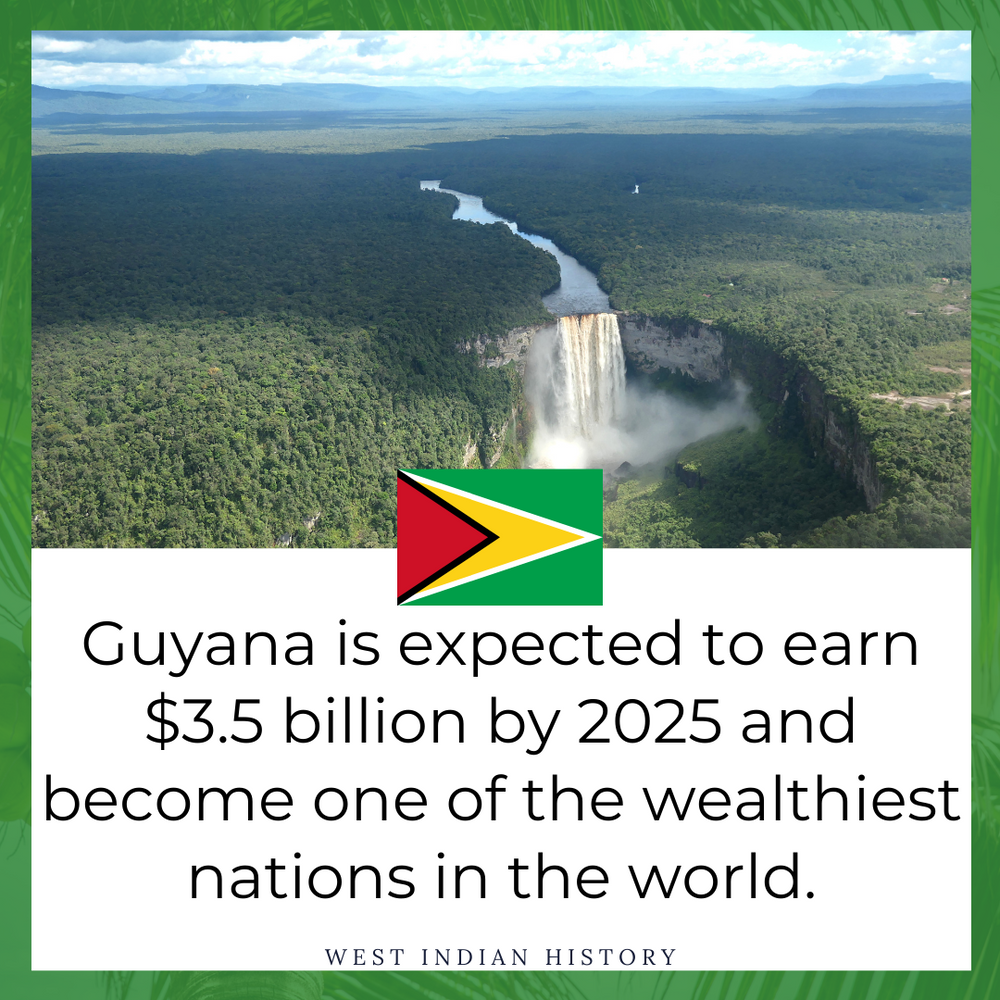Guyana Oil Update April 2022
By: Melissa D. Goolsarran Ramnauth, Esq. | Trademark Attorney for the U.S. and Caribbean


Guyana’s oil discoveries have put the country in a spotlight. Guyana’s cash flow is expected to be $3.5 billion by 2025– a stark difference from its recent position as one of the economically poorest countries. The spotlight highlights the vulnerabilities of a colonized nation at the hands of foreign investors.
The public has been concerned that foreign oil companies are taking advantage of the developing nation. It has been alleged that oil executives bribe Guyanese politicians or mislead the politicians. The oil investors also use the education disparity to take advantage of the already uneven playing field.
The most egregious public example (so far) is the ExxonMobile Stabroek Block Production Sharing Agreement (PSA). Experts assert that the Stabroek PSA fails to compensate Guyana a shocking $55 billion. The experts compared the Stabroek PSA to similar deals in other countries. There are also red flags with the other oil blocks.
Here are important recent developments in Guyana’s oil industry.
Guyana Petroleum Commission
A Petroleum Commission was suggested to act as regulator against corruption in Guyana’s oil sector between politicians and oil executives. The Petroleum Commission would serve as an independent board to mitigate corruption between the politicians and oil companies.
Prior secret dealings and collusion created public outcries. For example, the unexplained $18 million signing bonus the prior administration received from ExxonMobil. “It was only after intense pressure from the media, that the Coalition Government headed by former President Granger revealed that it had, indeed, received the signing bonus from ExxonMobil at the time of inking the 2016 Stabroek Block” PSA.
It is still unclear when this commission will be finalized and implemented.
Civilian Sues Guyana Over Oil Deal
Guyanese-American newspaper publisher, Glenn Lall, has sued Guyana for its extensive tax waivers granted to Exxon. The lawsuit states that the Stabroek Block PSA violates the Petroleum Act by extending production sharing concessions to persons not specified in the act. He also contends that the tax waivers cause severe loss of revenue for Guyana, are discriminatory, and violate the constitution. The waivers should therefore be repealed.
Exxon’s subsidiary responded that if the waivers are repealed, the company and its partners would face massive losses related to project expenditures. “There would be billions of $US dollars in additional costs which could well cause the projects to be uncommercially viable or infeasible,” according to its court filings.
Oral arguments have been scheduled for August 12, 2022.
Guyana Earns $106 Million
Guyana is to receive $106 million from the oil produced by ExxonMobil’s Liza 2 Project. This batch of oil was referred to as “Unity Gold.” President Dr. Irfaan Ali also notes that Guyana’s cash flow is expected to be $3.5 billion by 2025.”
There was a bidding process and Guyana sold 1 million barrels to Exxon. There were 5 other companies in the bid.
Guyana will use the money to improve infrastructure, power plants, and solar projects: “Guyana is now poised to be one of the wealthiest countries in the hemisphere; we intend to employ the gains from exploiting these deposits into initiatives geared at expanding the economy, improving competitiveness, giving people the best social services, increasing productivity, enhancing food production, and building new sectors,” said President Dr. Irfaan Ali.
Guyana Might Form National Oil Company
Guyana has several oil blocks. ExxonMobil owns the largest block. But there are other blocks that have not been auctioned off. Vice President Jagdeo stated that Guyana might form a national oil company to be a strategic investment partner for the oil blocks that it does not auction off:
“We’ve decided now that we want to either auction it [the remaining oil blocks] or we’re exploring now whether we can vest these in a national oil company but play a very passive role, as a passive investor, and get a strategic developer to work within the company to take shares and operate the company for us,” the Vice President highlighted.
Vice President Jagdeo and Guyana appear well versed in the oil production/low carbon dichotomy. Guyana’s massive oil production come at a time when the world’s most powerful countries are shifting away from oil and towards environmentally friendly resources. According to Vice President Jagdeo, Guyana is protecting the Earth by capturing more carbon dioxide than it emits, and that countries are still dependent on fossil fuels for energy.
The Takeaway
Guyana is set to be one of the wealthiest nations in the world. Its citizens and the larger Caribbean diaspora should continue its education on the oil industry in Guyana. One does not have to be an oil production expert or chemical engineer. Nevertheless, public awareness can even the playing field, and put pressure on oil companies to engage in equitable business dealings.
References:
https://www.offshore-technology.com/news/guyana-state-owned-oil-company/
Melissa D. Goolsarran Ramnauth, Esq. is a trademark and contracts attorney. She primarily helps growing businesses (anywhere in the world) with trademarks and name clearance searches.
She writes articles on the importance of trademarks, and also West Indian history (with an emphasis on India, Trinidad, Guyana, and the United States).
MDGR Law, P.A.
PO Box 101794
Fort Lauderdale, FL 33310-1794
(754) 800-4481